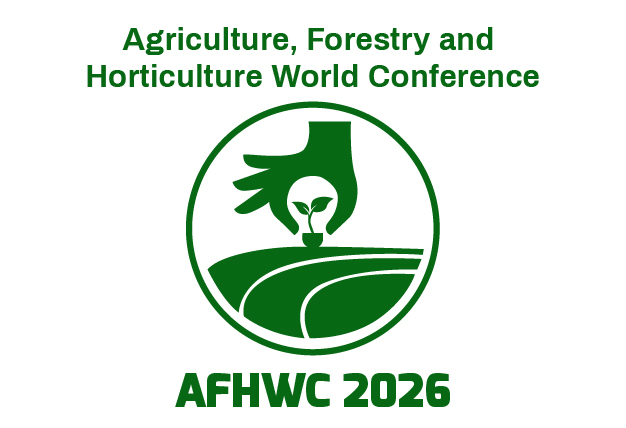Speakers - AFHWC2025

Laura Martins de Carvalho
Laura Martins de Carvalho
- Designation: Post-doctoral fellow at the Center for Studies on Knowledge- and Innovation-Based Urban Development (CEUCI), UNICAMP
- Country: Brazil
- Title: Urban and Periurban Agricultural Production Building Innovation Districts in Knowledge Territories
Abstract
The presentation explores the outcomes and significance of the workshop "Urban and Periurban Agricultural Production and Knowledge Districts," conducted by the Center for Studies on Knowledge- and Innovation-Based Urban Development (CEUCI) at UNICAMP. Held on August 24, 2023, this initiative aligns with the broader mission of the International Hub for Sustainable Development (HIDS) to integrate agriculture into urban planning as a cornerstone for innovation and sustainability. The workshop aimed to gather multi-stakeholder input to develop frameworks for integrating urban agriculture into knowledge districts, with the HIDS serving as a case study.
Context and justification
Urban and periurban agriculture (UPA) holds transformative potential in addressing urban sustainability challenges. By fostering food security, social inclusion, and technological innovation, UPA aligns with the Sustainable Development Goals (SDGs). The workshop addressed pressing issues, such as the absence of robust legal frameworks and limited public support for urban agricultural initiatives. It aimed to identify scalable solutions for embedding agriculture into the fabric of urban innovation districts.
Objectives
The workshop set out to:
1. Assess the potential for technological, socioeconomic, and infrastructural integration of UPA within innovation districts.
2. Foster collaboration among academia, public authorities, private enterprises, and civil society to generate actionable insights.
3. Create a replicable framework for integrating UPA into knowledge districts globally.
Methodology
A focus group methodology was adopted, organizing participants into five thematic groups:
1. Public policies for UPA.
2. Management models and collaboration strategies.
3. Technology in agricultural production and distribution.
4. UPA as urban green infrastructure.
5. Innovation and entrepreneurship in food systems.
Each group engaged in dynamic discussions facilitated by moderators and supported by digital tools like Miro. Participants presented proposals categorized into short-, medium-, and long-term strategies.
Key Findings
The workshop highlighted diverse insights across thematic areas:
1. Public policy
• short-term: establish local farmers' markets and partnerships for school meal programs.
• Medium-term: strengthen municipal frameworks to support innovative UPA strategies.
• Long-term: develop institutional mechanisms to mediate land use conflicts and promote sustainable urban agriculture.
2. Management and collaboration
• Short-term: foster equitable partnerships among stakeholders.
• Medium-term: develop living labs for stakeholder engagement.
• Long-term: institutionalize supply chains for urban food systems within innovation hubs.
3. Technological integration
• Short-term: deploy renewable energy-powered greenhouses and digital solutions for waste management.
• Medium-term: establish community kitchens to reduce food waste and enhance local value chains.
• Long-term: expand the use of recycled water for irrigation and adopt aeroponic farming techniques.
4. Green infrastructure
• Short-term: encourage urban green initiatives like rooftop gardens.
• Medium-term: integrate urban agriculture with mobility corridors to raise awareness.
• Long-term: promote agroforestry and regenerative farming within degraded urban spaces.
5. Innovation and entrepreneurship
• Short-term: empower women through urban farming initiatives.
• Medium-term: develop incubators for food startups.
• Long-term: create regional food innovation hubs to strengthen local gastronomic tourism.
•
Challenges and opportunities
Participants emphasized the critical need for legal and financial support to sustain UPA initiatives. Collaboration among academia, startups, public agencies, and civil society emerged as a linchpin for success. The HIDS exemplifies a fertile ground for testing these models, offering insights that could be scaled to other contexts.
Conclusion
The workshop underscored UPA's potential as a cornerstone for sustainable urban planning in knowledge districts. It proposed actionable strategies to bridge the gap between policy and practice, fostering a collaborative ecosystem that supports innovation and inclusivity. The findings serve as a roadmap for integrating UPA into urban development, aligning with global sustainability agendas. Finally, this presentation invites stakeholders to reflect on the transformative potential of UPA in creating resilient and equitable urban ecosystems.

